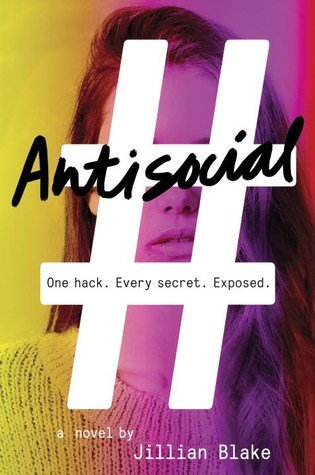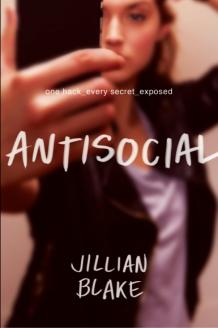While covering Anna's eyes is an artistic choice, misrepresenting her as a white girl is a racist one made by marketing department employees who decided a white girl would sell more books. This crap happens all the time in YA (and publishing in general). I can't say how Jillian Blake feels about this issue, but I can say that, if I'd gone to all of the trouble she did to include details about how guys think calling Anna South American while hitting on her will get them points, and how people who aren't Colombian seem to believe all people of Colombian descent look the same and then my publisher slapped a white girl on the front of my book instead of one who actually resembled my protagonist of Colombian descent, well, I'd be pissed.
By the way, The US cover is on the left, and the UK cover is on the right. I guess the marketing department thinks YA readers in the UK are less racist? I addition to the US cover being a diversity representation fail and yet another victim of whitewashing, the UK cover also depicts an actual plot point from the book, as well as conveying the mood of the story much more effectively than the US cover.
Anna is returning to school after Winter Break of her Senior Year--a break during which her longtime boyfriend dumped her without explanation. Suddenly, the social life she built around her dating relationship crumbles, and her Social Anxiety Disorder rears its ugly head. While Anna was busy trying to fit in with the ultra popular crowd where her boyfriend's buddies sat during lunch, she neglected and betrayed her actual friends. Upon her return to school, she finds herself boyfriendless, friendless, and drowning in a sea of anxiety-related symptoms. This isn't the best position to be in under normal circumstances, but then kids' phones start getting hacked around school, and their darkest secrets are revealed. The popular students (friends of Anna's ex) are the targets, and nobody can figure out who the hacker might be, because so many different kids stand to gain from unseating the popular kids from their thrones. Everyone has something to hide, and to lose... including Anna.
While Blake's representation of someone with Social Anxiety Disorder was solid, I found it super distracting that she constantly referred to it as SAD. I've always known SAD to stand for Seasonal Affective Disorder, so I kept having to stop and remind myself that isn't what Blake was talking about when the acronym appeared, which took me out of the story again and again. This is a small detail that made a big difference in my reading experience (for the negative). If Blake was looking for a shorter or less clunky way to refer to Anna's Social Anxiety Disorder, I wish she would've just said anxiety. Since Blake carefully described Anna's diagnosis and symptoms early on, I don't think using a general term like that would've taken away from the story like using SAD did.
Speaking of Social Anxiety Disorder, Antisocial begins slowly, with an opening that feels like it was ripped out of one of those middle school speeches starting with a dictionary definition of a word. The whole first chapter felt like a backstory and information dump, making it difficult to get into the story and develop empathy for the characters or anticipation about the mystery plot. Unfortunately, the whole book failed to build the excitement it should have. As the story progressed, my interest decreased with every chapter. If I wasn't writing a review, I would've put the book down well before the halfway mark and not picked it back up.
Since Antisocial deals with cell phones, hacking, and quite a bit of social media, there are lots of little excerpts and quoted sections from those sources. However, the way they're presented is frustrating an annoying, rather than creative and amusing, so I found myself wanting to skip them, even though I knew they could contain important clues as to the hacker's identity. Some of the characters (even the secondary characters) were well-written, but there were far too many to keep track of, and there were several kids (at the lunch table, for example), who didn't need to be named and described as if the reader was supposed to remember who they were, because they hardly factored in later, if at all.
Ultimately, Antisocial suffers from a slow-to-develop plot that feels boring, clunky inclusion of social media, and a whitewashed cover. It had every opportunity to get me interested, and it fell flat each time. If you're looking for a new YA release with elements of mystery and suspense that involves lots of technology, check out One Of Us Is Lying. Antisocial is definitely one to skip.


No comments:
Post a Comment